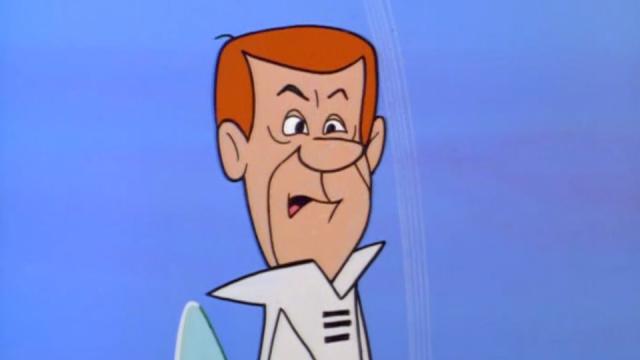Did you see the Hyperloop news out of Davos? You could be zipping around in a real-life Hyperloop by 2018! It’s 2016 now, so that makes it… just two years away! Where have we heard that before?
When it comes to high-tech projects, they always seem to be just two years away. Whether it’s flying cars, or holidays on the moon, or robot servants, people on the business end of ambitious projects always say they’re just two years away. But why?
Last week we told you about plans by Hyperloop Transportation Technologies to build a test track in Central California. The company has since clarified that it wasn’t a test track, but a proper 8km, fully functioning Hyperloop. Never mind that the place where they’re building it has been little more than a utopian real estate fantasy since 2008. But with or without homes, we’re supposed to have our Hyperloop by 2018.
It’s much more easy to have hope in the more optimistic strains of futurism when we have a target date. We often think about the future as a destination where we could one day arrive — usually fat, happy and rich in a hedonistic utopia of our own choosing. (Or at least with the happy and rich parts.)
But, of course, the future is a moving target. And once you arrive two years into the future, with or without the slick gadgets and idyllic life you may have imagined, you’re going to be confronted with the crushing uncertainty of another future; another destination with myriad ways to frustrate and disappoint and surprise. This future junk never ends. So why do we talk about it as a place that we might one day visit?
At first glance it might seem like one of the biggest hurdles to achieving some sense of accomplishment in reaching “the future” might be in our lack of clearly defined targets. But even those with a fixed date in mind have been largely disappointed in this so-called “future”. Two years feels tangible and yet it’s just far along enough that it’s easy to forget past promises when the time comes.
Baby Boomers, Gen Xers, and even older Millennials all had a big round number to look forward to with the year 2000. The year was more of a concept than a hard and fast date. But the year 2000 represented a half century (if not a full century’s worth) of largely unrealised hopes, dreams and fears. But when it wasn’t a big round number, people shilling everything from jetpacks to flying cars were saying that it was just two years away.
Cataloguing and exploring these expectations (two years away or otherwise) has been one of the the goals of Gizmodo. Sometimes they take the form of jetpacks or driverless cars. While other times they’re about gender equality or racist utopias. But even when these predictions and expectations had a specific target date attached to them, they almost always say more about the people envisioning them than they do about the actual future that arrives.
This seems to be the cruel lesson when one spends too much time examining past visions of the future: tomorrow really never comes. At best, the concept of the future is a coping method. Better or worse, maybe tomorrow will be different. Maybe this thirst for radical change in some form will finally be quenched. Maybe the companies and institutions that have for so long promised a society of leisure and comfort will make good on that. But it’s not likely. Because the future always seems to be pushed back. So many elements of futurism in the 20th and 21st century have amounted to little more than vaporware. Just hold out two more years. Things will be different, we promise.
Which isn’t to say that there’s nothing amazing in the world here in 2016. We’ve got all kinds of wonderful medicines and gadgets and infrastructure — provided you can afford to have access to them. But the hardest truth to confront after a long day of sifting through old media, as I often do here at Gizmodo, is that the world is and always has been pretty shitty for the majority of people on this planet. So focusing on the future — whether it’s tomorrow or two years out or a thousand years into Neverland — is one way to cope with the world and maybe prevent oneself from taking a long walk off a short pier.
Our answer to this question — when is the future? — has real world consequences. Because if we give up on “the future” and whatever that concept means for each of us, things can get pretty dark pretty quickly. So don’t give up hope. The future’s almost here. In fact, somebody told me it’s just two years away.
